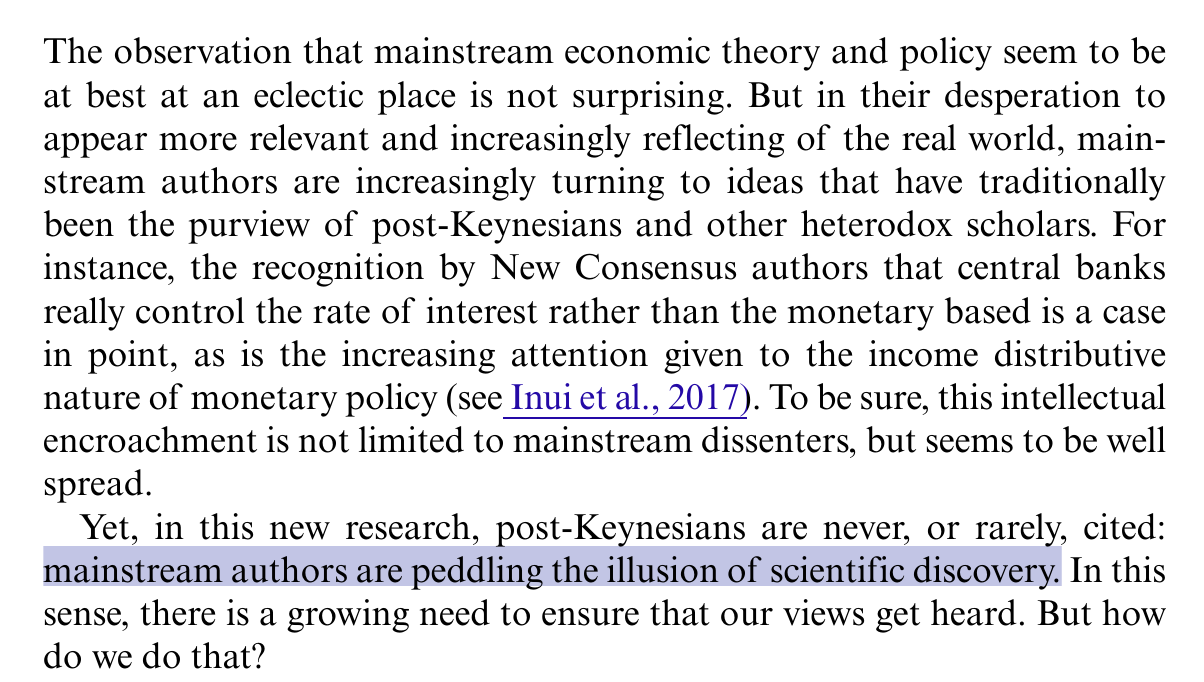Hayek on Unions
Recently, Angus Deaton wrote an IMF blog post on “rethinking his economics.” He openly acknowledged his shortcomings in the field. The appointment is significant because he is a Nobel laureate and a well-known mainstream economist. In his piece, he emphasizes how he missed the goal of trade unions and how disastrous it was to ignore the political, social, and economic consequences of undermining unions.


But who on the heterodox economics side didn’t know about the importance of labour unions for workers? for labour share of income? for democracy? for inequality? Mr.Deaton would have been better off by reading heterodox econ. His discovery reminded me of Mr Rochon’s comments about mainstream economists re-discovering heterodox econ. Rochon and Monvoisin (2019)

One of the main enemies of labour unions, and eventually workers, was Fredrick Hayek. He was asking for a “libertarian anti-labour union” movement, he used to equate unions with ‘armed bands of conquerors’ and ‘organised gangsters’ among others. But what about his arguments against unions? Coercion! Richardson has two interesting papers on his arguments in this regard Richardson (1996) Richardson and Roberts (1997). Let’s review one of them

Hayek believed that labour unions were “coercive” entities and thus against freedom. But what was his definition of coercion? Initially, he defined coercion as something relatively straightforward, with two requirements: 1. A force to control and push/ or a threat to inflict harm 2. Serving someone else’s ends


Ok, then are employers coercive too? Employers can use their bargaining power and leverage to force workers to serve the employer’s ends, correct? Nope! He didn’t believe that employers could be coercive even in the face of the “threat of starvation to the worker and perhaps to their family”

But why? Because the worker has alternatives! (Hayek used to live in a Keynseian world under full employment, or he had no clue about involuntary unemployment). Therefore, the act of a warehouse worker urinating in a bottle due to “timing” and working under a zero-hour contract does not constitute “coercion,” but rather a subtle “push.” They can work in another warehouse and pee in another bottle, though. This “push” isn’t intended to be in favor of the employer, seemingly.

Therefore, his definition of coercion extended to: 1. force 2. towards someone else’s goals 3. absolutely no alternatives
And according to him, employers could not be coercive, no matter how much pain they cause

To Hayek, not only normal employers but even monopolist employers could not be coercive unless their service was as vital as a “spring in an oasis.”

Then why are labour unions coercive? how do they meet all these requirements? Because they are monopolists! Because they force fellow non-members towards a path that they don’t want (and suddenly nonmembers don’t have ANY alternatives), because they harm the employers’ profit (and suddenly even the employers don’t have any alternatives)

The argument of Hayek is so biased, his language is so loaded, and he has such blatant double standards that Richardson concludes he “betrayed scholarship” using “smearing tactics.”.
 The prophet of freedom and liberty hated unions also because they were the “prime source of unemployment”, the “main reason for the decline of the British economy in general”, “the biggest obstacle to raising the living standards of the working class.” Undermining labour unions by Thatcher’s government based on Hayek’s ideas and what Britain and its working class have experienced afterwards show the merit of this “prophet”. Letwin (2018) Wedderburn (1989)
The prophet of freedom and liberty hated unions also because they were the “prime source of unemployment”, the “main reason for the decline of the British economy in general”, “the biggest obstacle to raising the living standards of the working class.” Undermining labour unions by Thatcher’s government based on Hayek’s ideas and what Britain and its working class have experienced afterwards show the merit of this “prophet”. Letwin (2018) Wedderburn (1989)

